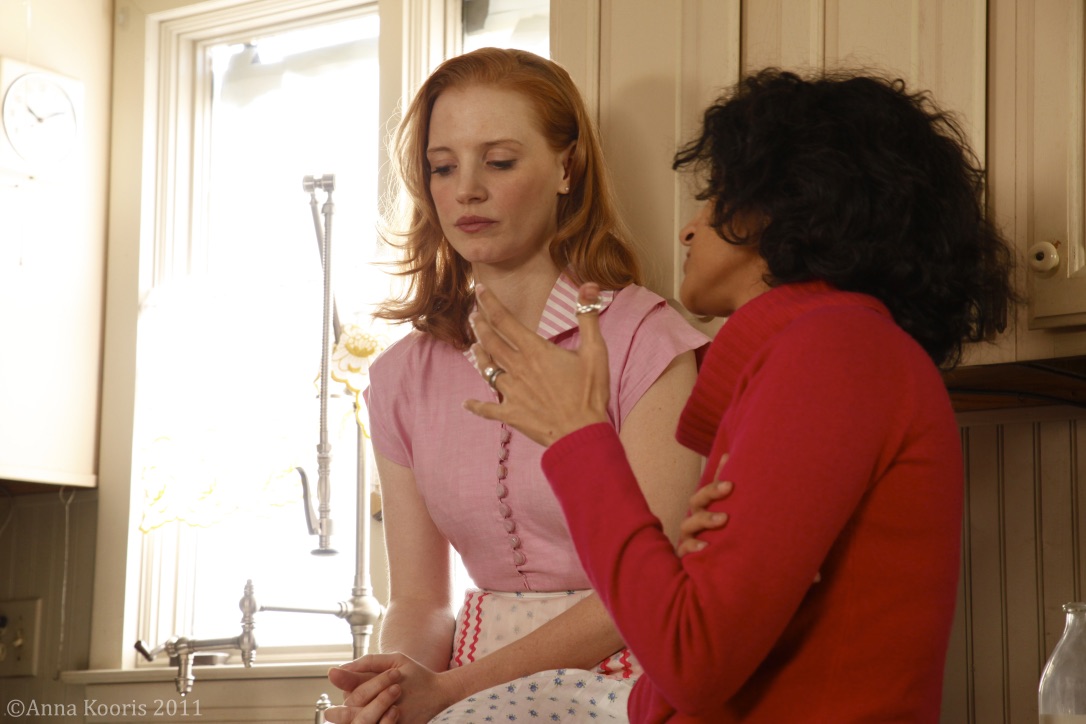
One of my early lessons in screenwriting was to focus on the character—motivations, personality, drives—and not external characteristics. It’s tempting to specify that the leading lady is blonde, petite, or whatever. And it’s okay to envision the character while writing, but we’re taught to avoid specifying detailed external appearance in casting.
The reason is that sometimes, the best casting decision is the one that’s least expected. You might have an image in your head of the character, but the best actor—the person who is most convincing and does an incredible job—might look very different from your mental image. Let’s say your character is written as a seductress, but the best actor for that role could be more of a plain Jane. That adds a lot to the nuance and depth to the story. A more regular-looking person being a seductress is so much more interesting than the hottest person on earth being a seductress. The film Snowpiercer was written for a mild-mannered man in a suit, but Tilda Swinton rocked the role.
During casting sessions, screenwriters and directors need to learn to set aside their mental picture, look at the actors in front of them, and reimagine the story with each person auditioning. That’s the way to cast the best actors.
Similarly, investors sometimes have a mental picture of who will be a good entrepreneur. It’s not based on looks (one hopes), but on the profile — the experiences a person “should” have had to be a great entrepreneur. VCs can sometimes be biased toward someone who’s worked at a hot company that went public, or is an engineer who can build it all, or a name-dropper who seems very connected in the ecosystem.
If investors carry around these biases in our heads, we will miss the best people. Like great actors, great entrepreneurs can come in all shapes and sizes, and from all backgrounds, all levels of work experience, ages, nationalities, and genders.
When casting an actor, the most important things to look for include:
- Ability to live the character. Do you believe the actor is the character
- Willingness to take direction. A director should never tell an actor “how” to play the scene, but the director can and should give her guidance on the mood of the scene, how the audience should feel, or the character’s motivation for a certain action. And the actor should be able to take that input and give the director a range of options.
I remember when I had the chance to direct Jessica Chastain and James Franco. They gave me such a spectacular performance on the first take and then turned around, asked how it was, and whether I wanted to see it another way. My jaw was on the floor — I was blown away by their talent and their humility in asking for input from a student director.
- Ability to go with the flow. Film production (especially in the indie world) needs to be flexible. Sometimes, a much-desired location might suddenly become available (for free!), and the crew might have to shoot there tomorrow instead of three weeks from now. This means the actor has to be ready for scene 56 instead of scene 18.
Many of those same characteristics apply to ideal founders:
- Ability to fully inhabit the role of the CEO. This is about vision, tactical capability, ability to hire, and the ability to sell their vision and themselves.
- Willingness to take input. An investor should never tell a CEO how to do their job, but a big part of the investor’s role is to see around corners, anticipate challenges based on their experience, and give the CEO input and feedback.
- Ability to go with the flow. Startups need to be flexible. Sometimes, a new competitor might emerge, you might lose a key person on your team, a pandemic might unexpectedly sweep the globe. The best CEOs are those who can adapt and find a way to thrive in the new world.
Just like the success of a film depends on casting the person who is the best actor, the success of an investment depends on casting the best founder. It requires putting aside the mental preconceptions and focusing on the person in the room (or on Zoom). Despite her youth, can she be an amazing CEO? What gives you that confidence? Her knowledge of the space? Ability to be compelling? Authenticity?
The best casting decisions happen when we are open to allowing incredible actors to show us how much better the character can be. In the same way, I try to approach every meeting with a founder with a willingness to be blown away by their vision of the world.